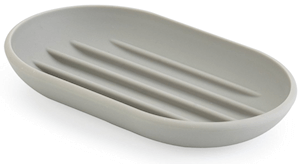No soap

Q From Anthony Pennock: Why do we say no soap?
A I’m not sure that people do any more. From my vantage point in the UK, this classic Americanism appears to have largely died out, remembered and occasionally used only by older people.
A speaker usually means by it that there’s no chance of something happening or no hope of some outcome, that the enquirer is out of luck or more generally that some request is being denied.
When he called the Georgia senator to ask for his help on the defense reorganization bill, Russell replied, “No soap.”
The Sputnik Challenge, by Robert A. Divine, 1993.
For me, perhaps through reading too many old American crime novels, it brings to mind the 1930s and 1940s as a term of the underworld and hard-bitten detectives:
I dropped quietly on the running board and waited. No soap. Canino was too cagey.
The Big Sleep, by Raymond Chandler, 1939.
The first examples of the idiom appear near the end of the First World War in letters home from draftees. The more literate of such letters were often reprinted in small-town newspapers to let readers know how their boys were doing. The ones which I’ve uncovered that mention no soap all came from recruits at the Great Lakes Naval Training Station in Illinois. This is a late example:
Saturday came along and we all dressed up in our best, as that was our liberty day, when the Commander came in and said “No Soap” on liberty as we were in a draft. No one is allowed liberty when they are on a draft, afraid that someone would run away.
Versailles Republican (Versailles, Indiana), 3 Oct. 1918.
An article a few months later headlined “Demobilizing War Words” confirms that the expression was widespread within the US Navy:
A particularly pathetic case is that of the nautical term, “No soap!” I say “particularly pathetic” because I myself have found the phrase so much more satisfying than the more classical “nothing stirring!” which it has so amply replaced. “Nothing stirring” will find strong support among the purists, but half a million sailors and an equal number of sailors’ sweethearts are not going to surrender the new-found phrase without a fight.
Boston Globe (Boston, Massachusetts), 9 Feb. 1919.
Later evidence suggests that it did remain popular and met a need within a wider audience for a sharply colloquial dismissive saying.
As with most slang expressions, where it comes from is uncertain. In the past, the experts have pointed to the much older use of soap to refer to money, a term that was first recorded in a slang dictionary in 1859 but which had a long run right down into the 1920s, overlapping with no soap. This overlap, I suspect, led etymologists to infer a connection between the two and it’s not implausible. It might well have been that a person who said “No soap!” meant something like “No, I haven’t any money” or “No, I won’t give you a loan”.
But other letters home from First World War navy recruits, coupled with newspaper articles from the period about naval slang, suggest a more mundane source. Recruits often complained they weren’t being supplied with soap, a need that was at times met by the Red Cross in the comfort kits they supplied. Soap was in short supply in the US at the time — as it was throughout Europe — because its raw materials of gelatine and fat were being diverted to make explosives. It seems likely that no soap, at first a rueful complaint, became for recruits a saying that meant — as early references confirmed — “you’re out of luck”. The slightly broader senses naturally followed.
